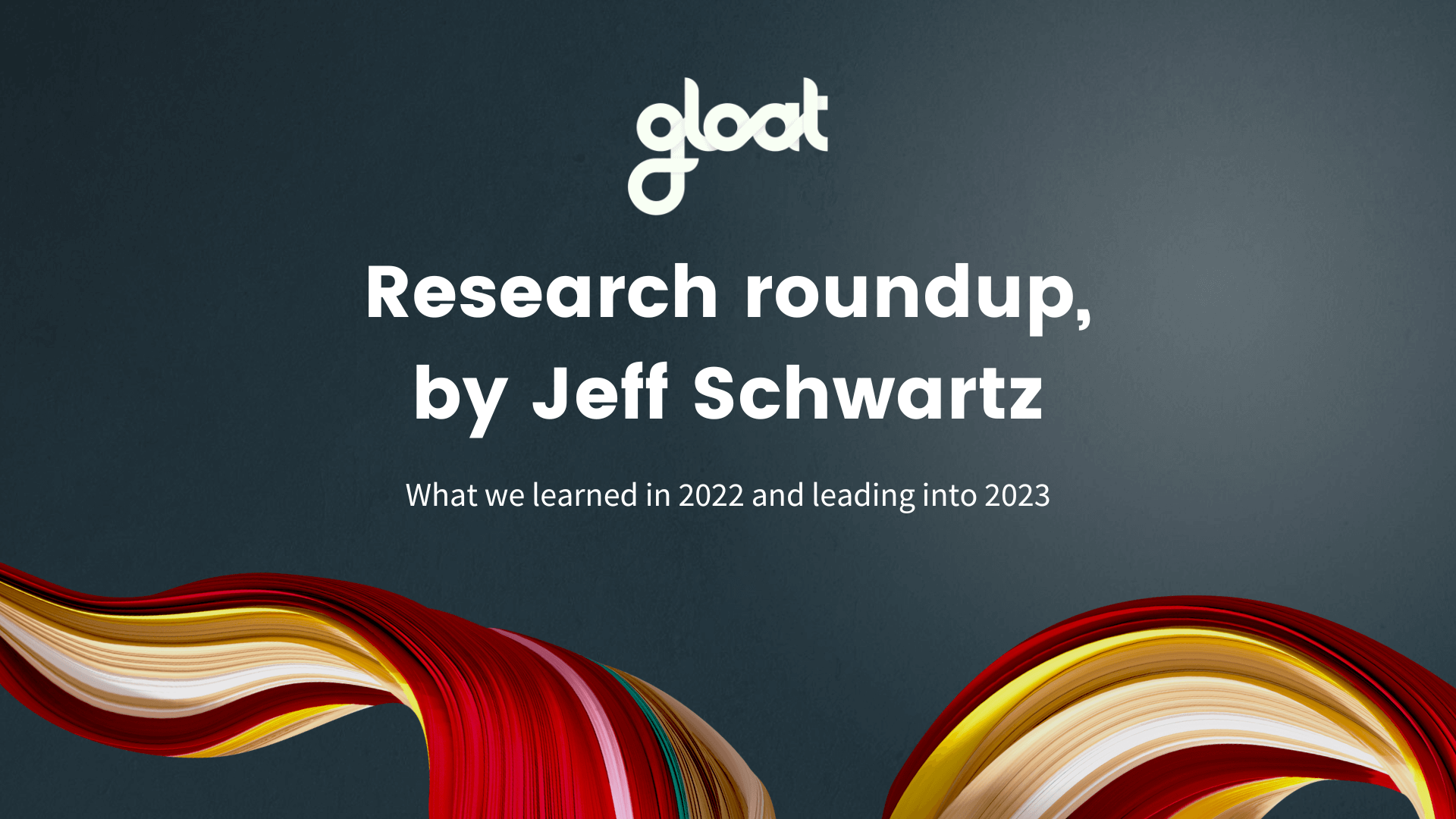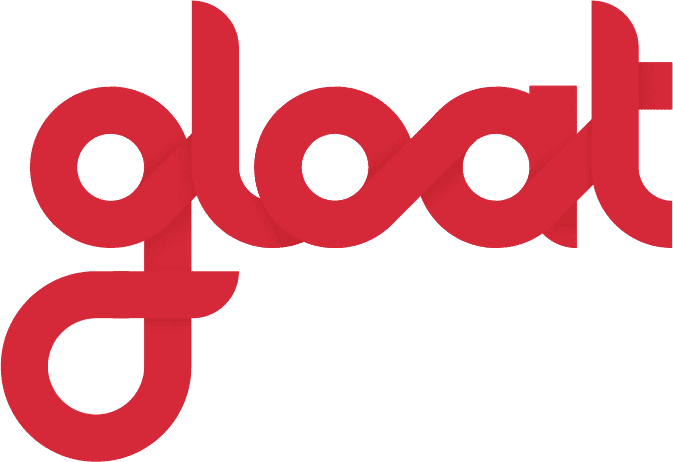November research roundup
What I am reading, listening to, and thinking about in the world of talent marketplaces and workforce intelligence

As the new year approaches, I believe we are at an inflection point. Organizations are learning about new and dynamic approaches that can reshape careers and unlock our workforce’s skills, interests, and potential. Yet most businesses are still clinging to operating models based on functional hierarchies and legacy HCM technologies. These companies have one foot in the past and one foot in the future. The question as we prepare for 2023 is, how do we shift our focus from the past to the future?
There’s no doubt that we’re in a moment of transition, or what my colleague Lynda Gratton refers to as a liminal moment. But we’re also in an age of unprecedented disruption, where instability and uncertainty are constants and every business is evolving to stay ahead of today’s accelerated pace of innovation. Instead of responding slowly as the world around us rapidly shifts, leaders need to proactively move with changes that are equally bold. They must harness an understanding of changing employee expectations, marketplace dynamics, data, and AI to drive a new approach to work that empowers people to achieve their full potential and enables managers to tap into all of the skills their organizations have to offer.
For many of us, 2022 has been a year of recovery and discovery as we reflected on the intense first years of COVID and our response and resiliency. As leaders prepare for the challenges ahead, I invite everyone to contemplate the lessons they’ve learned and the strategies they wish to bring with them into 2023. I’ve selected some of my recent favorite articles, videos, podcast episodes, and research—all of which spotlight the insights decision-makers need to set their organizations up for success in the new year.
What’s ahead for us in 2023 will be determined, at least in part, by how we reflect on the events that have already unfolded and the horizons we set for ourselves and our businesses for the next few years. As I suggest in an article and podcast with my former Deloitte colleagues, now is the time to focus on the journey to 2030.
Here are the pieces I am reading, listening to, and thinking about to prepare for 2023:
READ: What’s new in thought leadership about talent marketplaces and the future of work
Josh Bersin Talent Marketplace Collection: If you’re going to make the game-changing move to implement a talent marketplace in 2023, there’s no better place to get up to speed than this definitive collection that explores what the platforms have to offer. Thanks to Josh Bersin, Kathi Enderes, and their team for this comprehensive release including in-depth stories from our partners at Mastercard, Schneider Electric, and HSBC. In Josh’s words, “By combining theory, strategy, and real-world recommendations, this collection provides a one-of-a-kind solution to businesses focused on recruiting, retaining, and reskilling their employees—and designing a new world of talent mobility.”
What I Learned From The King and Queen Of The Netherlands, JoshBersin.com, by Josh Bersin: The future of work is no longer a discussion solely for HR leaders: it’s a set of strategic decisions, or as Josh summarizes, “the future of work is not a book or a speech, it is a set of values-based decisions, many of which we make every day.” In fact, it’s something that national leaders are exploring, as Josh saw firsthand while participating in a national event with the King and Queen of the Netherlands and their guests at the Palace Symposium on the Future of Work in Amsterdam. He recaps some of the key takeaways from this event, which featured Lynda Gratton from the London Business School and Dr. Kim Putters, who explained how the future of work is really the future of society. Consequently, business people, HR leaders, entrepreneurs, and professionals must come together to design organizations that pay people fairly, prevent bias, and create opportunities for everyone.
The Creator Economy is the Future of the Economy, Fast Company, by Richard Florida: As we aim to explore all of the forces of change that are shaping our next chapter, we can’t overlook the rise of the creator economy, which is what Richard Florida explores in his Fast Company piece. He explains that nearly 60 million Americans—as much as 40% to 50% of the workforce in some cities—are part of what he calls the Creative Class, meaning they are directly employed to work with their intelligence and creativity. While digital influencers are the most prominent example that comes to mind, creators are better understood as anyone who makes and publishes unique content online, whether that’s videos, films, art, music, designs, text, or games. This piece builds on the research and books Florida has written as a pioneer in charting the emergence and economic importance of the creative class.
LinkedIn CEO Ryan Roslansky: Skills, Not Degrees, Matter Most in Hiring, Harvard Business Review, by Ryan Roslansky and Adi Ignatius: This conversation between Harvard Business Review’s editor-in-chief Adi Ignatius and Linkedin CEO Ryan Roslansky is a must-read for anyone who’s looking to understand the pivotal role that skills will play in the new world of work. Rolansky explains that skills, more than degrees or pedigrees, are the true measure of what makes a great new hire. He encourages leaders to adopt a skills-first mentality, shifting away from more antiquated signals like education and background, to ensure that the right people can move into the right roles, with the right skills to do the best work. This mindset shift will not only create a more efficient labor market; it will also break down barriers and ensure everyone has access to meaningful career development opportunities.
Taking a skills-based approach to building the future workforce, McKinsey, by Bryan Hancock, Chris Higgins, Jonathan Law, Sarah Olson, Nikhil Patel, and Katie Van Dusen: The effects of the COVID-19 pandemic, a potential recession, still-rising inflation rates, and the Great Attrition have driven employers to rethink their approach to talent management. Namely, leaders are looking beyond degrees and job titles and instead focusing more on the skills that a job requires and how they align with the capabilities that a candidate possesses. McKinsey’s latest research conducted in partnership with the Rework America Alliance explores what it takes to deploy a skills-based approach and the steps employers can take to build a workforce that is sustainable and inclusive.
The Great Resignation & The Future Of Work: Jeff Schwartz of Gloat On How Employers and Employees Are Reworking Work Together, Authority Magazine, by Karen Mangia: Last month I had the pleasure of sitting down with Authority Magazine’s Karen Mangia to discuss how employees and employers are reimagining the way work gets done to build brighter futures. We talk about the need for marketplace dynamics in HR, rather than static and standardized workflows. I also highlight my top five trends to track in the future of work: 1) All work will involve combinations of people and technology working together to create value and meaning, 2) The changing expectations of the future of the multi-generational workforce, 3) The evolution of talent marketplaces and workforce ecosystems, 4) Hybrid, remote and virtual work will dominate workplace strategies, and 5) As work changes, so must leadership and management styles.
LISTEN: What I’ve been playing on repeat
Highlights from the Guild Opportunity Summit, guildeducation.com: Earlier this year, Guild brought together HR executives, learning innovators, and industry thought leaders for the Guild Opportunity Summit, dedicated to tackling today’s toughest workforce challenges. The summit was filled with eye-opening findings—which are now available for viewing online—including new data from The Josh Bersin Company revealing that creating extensive opportunities for career growth is the single most impactful practice for driving business, innovation, and talent outcomes.
Cal Newport on knowledge work, Part 1: The concentration deficit, Harvard Business School Managing the Future of Work, with Joseph Fuller: Harvard Business School’s Future of Work podcast is known for eye-opening discussions on topics at the heart of today’s workplace reimagination journey—and this conversation with Georgetown computer science professor Cal Newport is no exception. He sits down with Harvard Business School’s Joseph Fuller to talk about the sociological and real estate implications of remote work, the pros and cons of a 4-day work week, and what we can learn about productive work from software developers. Cal is a deep and provocative thinker who weaves in highlights from his 2021 book, A World Without Email: Reimagining Work in an Age of Communication Overload, where he explores the “hyperactive hive mind where our jobs become reacting to email and instant messaging in an endless swirl of distraction.”
Cal Newport on knowledge work, Part 2: Slow productivity, Harvard Business School Managing the Future of Work, with Joseph Fuller and Cal Newport: The second part of Cal Newport’s conversation with Joseph Fuller continues the discussion and explores the critical question of productivity. Newport shares his take on what productive knowledge work is and how to measure it, and discusses the rise in quiet quitting that many leadership teams have been struggling with recently. The question of productivity in the knowledge economy, which was opened up to the world by Peter Drucker, is a critical topic that Cal Newport is helping all of us explore as we aim to improve, measure, and manage work that is increasingly knowledge-intensive, social, and distributed.
The American Opportunity Index: Rating Employers on Upward Mobility, Harvard Business School Managing the Future of Work, with Matt Sigelman and Joseph Fuller: During this episode of Harvard Business School’s Managing the Future of Work podcast, co-chair Joe Fuller sits down with Burning Glass Institute president, Matt Sigelman, to discuss the new employer scorecard. Their conversation focuses on the powerful role that internal mobility plays in engaging employees and evaluating how well Fortune 250 firms deliver on this, particularly for non-college graduates. The Opportunity Index highlights the critical importance of internal development opportunities, which is central to our work at Gloat.
THINK: What research and studies are saying about our path forward
The journey to 2030: Choosing the human agenda, Deloitte, Steve Hatfield, Nicole Scoble-Williams, Yves Van Durme, and Jeff Schwartz: There is no better time to take stock of where we want to be in 2030 than right now, as we pivot to the post-COVID era. Deloitte breaks down the disruptions we’re navigating into seven business and societal shifts that are altering the trajectory of organizations’ human agendas in the run-up to 2030. These seven shifts include: 1) Worker expectations and agency, 2) Longer lives, more opportunities, 3) Human-technology collaboration, 4) Digital/virtual/metaverse lives, 5) Data and privacy: battle royale, 6) Trust and corporate governance, and 7) Stakeholder capitalism in a volatile world. The challenge for HR and business leaders is to navigate these pivots and reference where they want to be in 2023 and beyond. In addition to the report, I’m pleased to share a podcast conversation on these themes that I released with Yves Van Durme, the Global Human Capital Leader for Organization Transformation at Deloitte Consulting.
Cross-Generational Attitudes That Will Transform the Built Environment, CBRE.com: After polling more than 20,000 people worldwide earlier this year, CBRE has identified four overarching themes that will significantly influence how consumers live, work, and shop: quality of life, location, ESG, and hybrid working. One key takeaway is that the growing adoption of hybrid working will have impacts beyond the physical office space; it’s also reshaping where people choose to live and what they look for in their homes.
CONNECT: What future-fit organizations and leaders are talking about
Work disrupted? Get ready for more change!, M. Eric Johnson, Linkedin: A big thanks to M. Eric Johnson, Dean of Vanderbilt University’s Own Graduate School Management for the invitation to discuss my research on the future of work and my book WORK DISRUPTED. He and I talked about how the past three years have exposed the potential of workforces to solve huge challenges and my belief that we will see just as much change by 2025 as we saw from 2020 to now. The most successful firms will be those that reimagine and redesign work to fit the needs of companies and the desires of workers. With those changes will come entirely new ways of thinking about multi-phase careers that flex and change with the nature of work itself.
Let us know what you would add to our list as essential reading and listening to accelerate thinking and action as we move into the consequential year of 2023.





